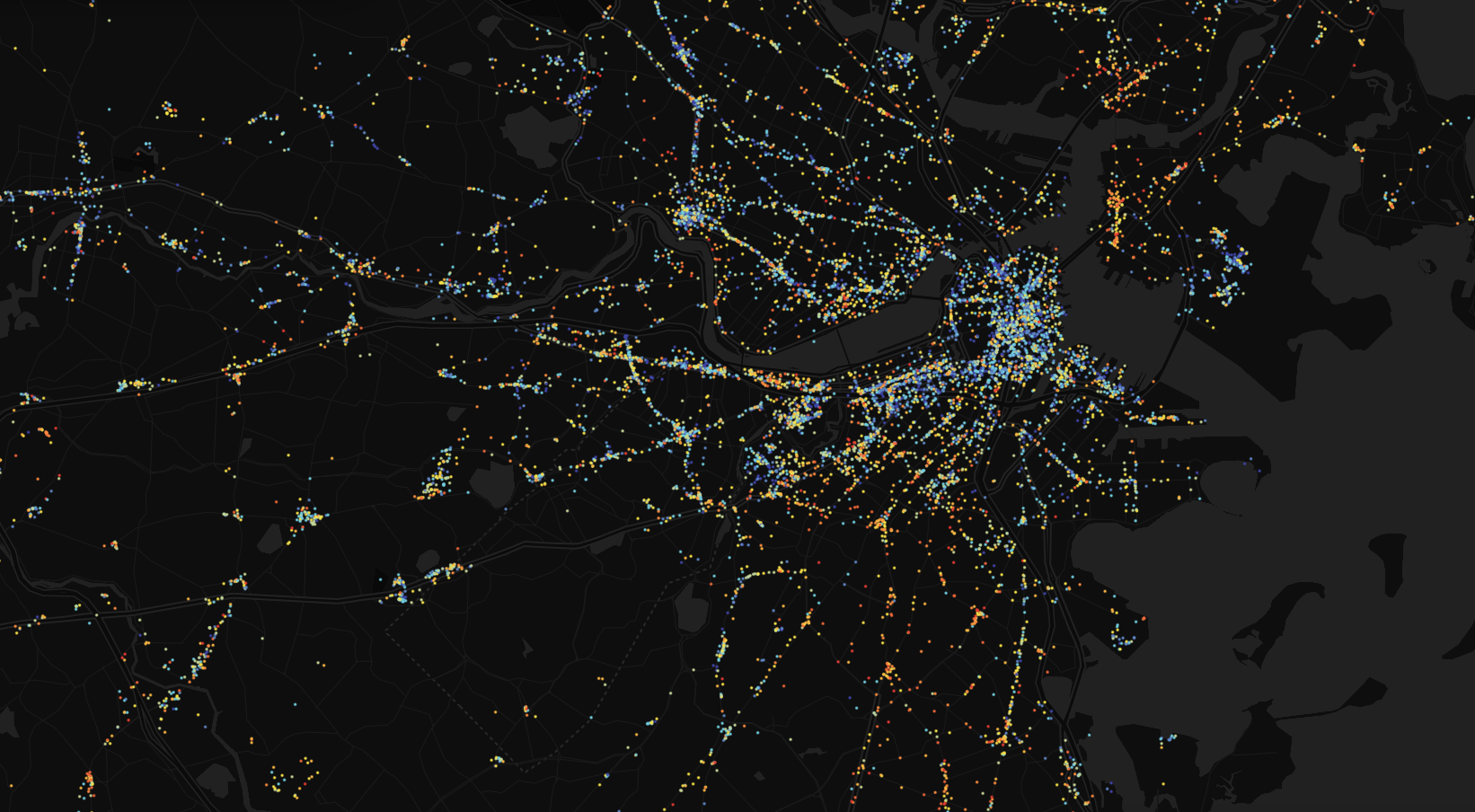Title Page
From Video Game to Day Job: How 'SimCity' Inspired a Generation of City Planners. Los Angeles Times.
Introduction
Los Angeles Plays Itself. Longreads.
"This is a city where the most basic cornerstones are understood to be private: private life, private architecture, a city Louis Adamic once described as “the enormous village,” where the single-family house is the essential heart. And yet, in contemporary Los Angeles, that is changing, as population growth forces our hand. What is the great civic project of the twenty-first century? Light rail, subways, bike lanes, a transportation network in which the one-car-one-commuter ethos is replaced by something more inclusive, less about how the city may once have seen itself than what it has become."
Executive Summary
In a new interactive map dubbed the "Atlas of Inequality' and published by the Massachusetts Institute of Technology's Media Lab and the Universidad Carlos III de Madrid, researchers examine the dynamics of micro-level segregation, a concept CityLab writer Tanvi Misra explains well:
When I lived in my old D.C. neighborhood of Mount Pleasant, it was at that particular stage of gentrification where it seemed truly diverse. Taquerias and pupuserias stood right alongside indie theaters and grungy dive bars; the sidewalks were a multicultural mix of young, mostly white professionals and working-class people of color. But if you looked closer, you’d notice what some experts call “micro-level segregation.” People from different economic and racial backgrounds didn’t frequent the same bars, restaurants, and stores. Latinx residents seemed to hang out at Marleny’s, whereas more affluent newcomers would be seen at Marx Café—right next door.
The map itself is of the Boston metropolitan area but it's a concept that many other cities likely recognize. The typical geographic-level of analysis tied to census data doesn't always capture our lived experiences but information about the so-called "third places" we frequent provides additional and often finer detail about the nature of segregation. With that in mind, the team crafted a map showing the income levels of visitors to various places. "Economic inequality isn't just limited to neighborhoods, it's part of the places you visit every day," the researchers note on the interactive website.
Conclusion
As cities across the country move to restrict businesses that don't accept cash, many are making the argument that discriminating against people paying with cash, who may not have a credit or debit card, is a violation of the Civil Rights Act.
But because, as CityLab pointed out, "A business can refuse service as long as their policies aren’t purposely discriminating against a person’s race, religion, sex, or national origin, which owners of cashless institutions would argue their policies aren’t."
Still, the data suggests a potential disproportionate impact. Nationally, roughly 17 percent of black households were considered "unbanked," meaning no one in the house had a checking or savings account, according to a 2017 report from the Federal Deposit Insurance Corporation. Fourteen percent of Hispanic households were considered "unbanked," compared to just 2.5 and 3 percent of Asian and white households respectively. That report found that just "7.2 percent of unbanked households had a credit card."
"Cashless institutions encourage a FinTech Jim Crow by restricting the places where people of color can shop, eat and receive basic services,” said Edgard Laborde, deputy political director of the Retail Wholesale Department Store Union (RWDSU), during testimony before New York City Council, according to CityLab. “By refusing to serve communities of color, cashless establishments carve out niches in gentrified neighborhoods through cash exclusion in an already unaffordable city.”
But one lawyer was skeptical that bans like the one on the table currently in New York City would be upheld in the Supreme Court. "The clash between businesses’ right to refuse service, and other compelling interests have resulted in allowing these forms of discrimination to continue,” Marie Napoli told CityLab.
Endnotes
Excellent account of how Duke’s torpedoing of Durham’s light rail—whether or not you like the project—is truly an attack on democratic decision making. https://t.co/ChxdPqH2Wc
— Yonah Freemark (@yfreemark) March 6, 2019

